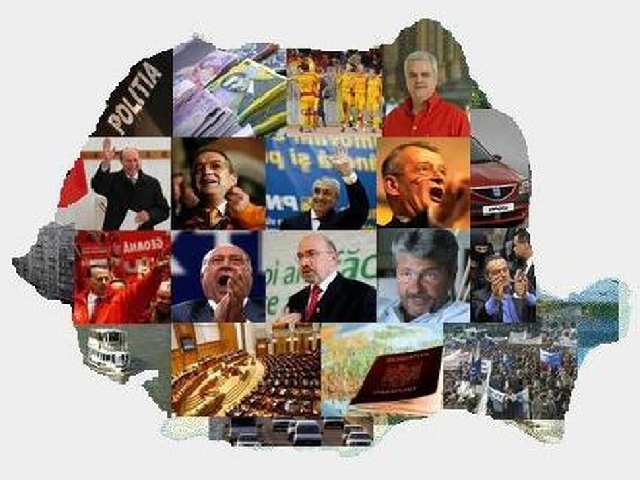The Week in Review 19-24.12.2016
A round-up of the main events in Romania this week.

Corina Cristea, 24.12.2016, 14:00
President Iohannis continues talks with
parliamentary parties to form new government
The prime minister
who will form the new government of Romania will be designated after Christmas,
said President Klaus Iohanis. He pointed out that during the consultations he
held with the 6 parliamentary parties he received two nominations for the prime
minister position. Klaus Iohannis:
During the
consultations two proposals were made. The Social Democratic Party nominated
Mrs. Shhaideh and the People’s Movement Party nominated Mr. Tomac. On the other
hand, a majority coalition was formed in Parliament, made up of the Social
Democratic Party, the Alliance of Liberals and Democrats in Romania and the
Democratic Union of Ethnic Hungarians in Romania. Therefore, we will be holding
talks on these issues in the coming days and I will designate the prime
minister after Christmas.
The Social Democrat
Sevil Shhaideh, of Turkish origin, is currently an adviser to the Minister of
Regional Development. She was herself minister of regional development for a
short while, in Victor Ponta’s Cabinet.
Deputy Eugen Tomac
was secretary of state with the Department for the Romanians in the Diaspora
within the Foreign Affairs Ministry between 2009 and 2012.
The Social
Democrats, the winners of the December 11 elections, made a coalition with the
Alliance of Liberals and Democrats in Romania, the party led by the speaker of
the Senate, Călin Popescu Tăriceanu. They also signed a protocol of
parliamentary cooperation for the next 4 years with the UDMR. The three parties
have committed to holding regular consultations and support legislative
initiatives together. The UMDR pledged to back all the bills drafted by the
government.
The legislative steps made in the fields of
education and healthcare, as well as the finalisation of the road transport
infrastructure projects included in the governing program of the new coalition
are considered top priorities.
The new Romanian
Parliament has taken office
On Tuesday the newly
elected Senate and Chamber of Deputies convened for the first time, with the
procedures for the validation of mandates, the swearing in ceremony, the
setting up of expert committees and the election of the speakers of
Parliament’s two chambers taking place at a fast pace.
Călin Popescu Tăriceanu,
the co-president of the Alliance of Liberals and Democrats in Romania was
elected for a new term as speaker of the Senate, with 87 votes in favour and 40
against. He urged his fellow Senators to take their mission seriously and to
act in such a way as to make Parliament a powerful institution. The Social
Democrat leader Liviu Dragnea was elected Speaker of the Chamber of Deputies, with
216 out of 317 votes. He called on MPs to support the important projects for
the country, irrespective of their political affiliation.
The members of the
two Permanent Bureaus, of the Senate and the Chamber of Deputies, were also
elected. Another necessary step for Parliament to start working is the setting
up of floor groups. The Senate has 6 groups, represented by the Social
Democratic Party, the National Liberal Party, the Save Romania Union, the
Alliance of Liberals and Democrats, the Democratic Union of Ethnic Hungarians
in Romania and the People’s Movement Party, whereas the Chamber of Deputies
also includes the group of ethnic minorities apart from the 6 aforementioned
groups. Senators also voted on the membership of the 22 expert committees, as
well as the chairs, deputy chairs and secretaries of the permanent committees
in keeping with the number of seats held by each political party.
The Social Democrats
will chair 11 committees, among which the legal, budget and education
committees. The Liberals will lead 5 committees, including the defence and
economic ones, while the Alliance of Liberals and Deputies heads the
constitutionality and regional development committees. The recently set-up Save
Romania Party holds the presidency of the committees on environment and equal
chances. The People’s Movement Party, headed by the former president Traian Băsescu, heads the committee on development and
economic strategy, while the Democratic Union of Ethnic Hungarians leads the
committee on healthcare.
Commemorations of
1989 anti-Communist uprising held across Romania
Ceremonies continued
this week for the commemoration of the heroes of the 1989 anti-Communist
uprising. December 22, 1989 was the day when tens of thousands of Bucharest
residents took to the streets to protest against Ceauşescu’s regime.
The protests started
on December 17 in the western city of Timişoara,
which became the first city free of Communism. In Bucharest, the protesters
occupied the Palace Square and stormed the headquarters of the Communist
Party’s Central Committee. The dictatorial couple managed to escape, to be
later apprehended. Meanwhile, the protesters occupied the headquarters of the
public radio and television stations, which announced the fall of the Communist
regime and kept people informed on the events taking place at that moment.
Ceremonies
commemorating the people killed in those days in Bucharest and other cities
have been held in Romania this past week. Romania’s Parliament held a solemn
session on the anniversary of 27 years since the 1989 anti-Communist uprising.
President Klaus Iohannis conveyed a message on the occasion, in which he
underscored the need to remember the martyrs of the 1989 revolution with
respect and gratitude, because their sacrifice led to a free and democratic
Romania. Romania is the only country in the eastern bloc where the change of
regime was made by force and the communist dictators executed.





























